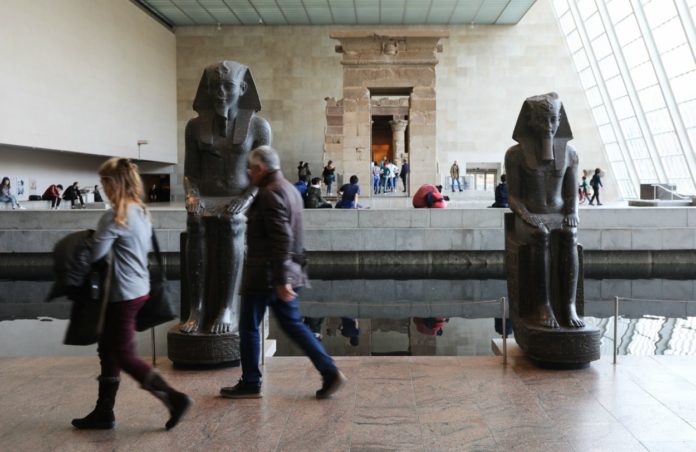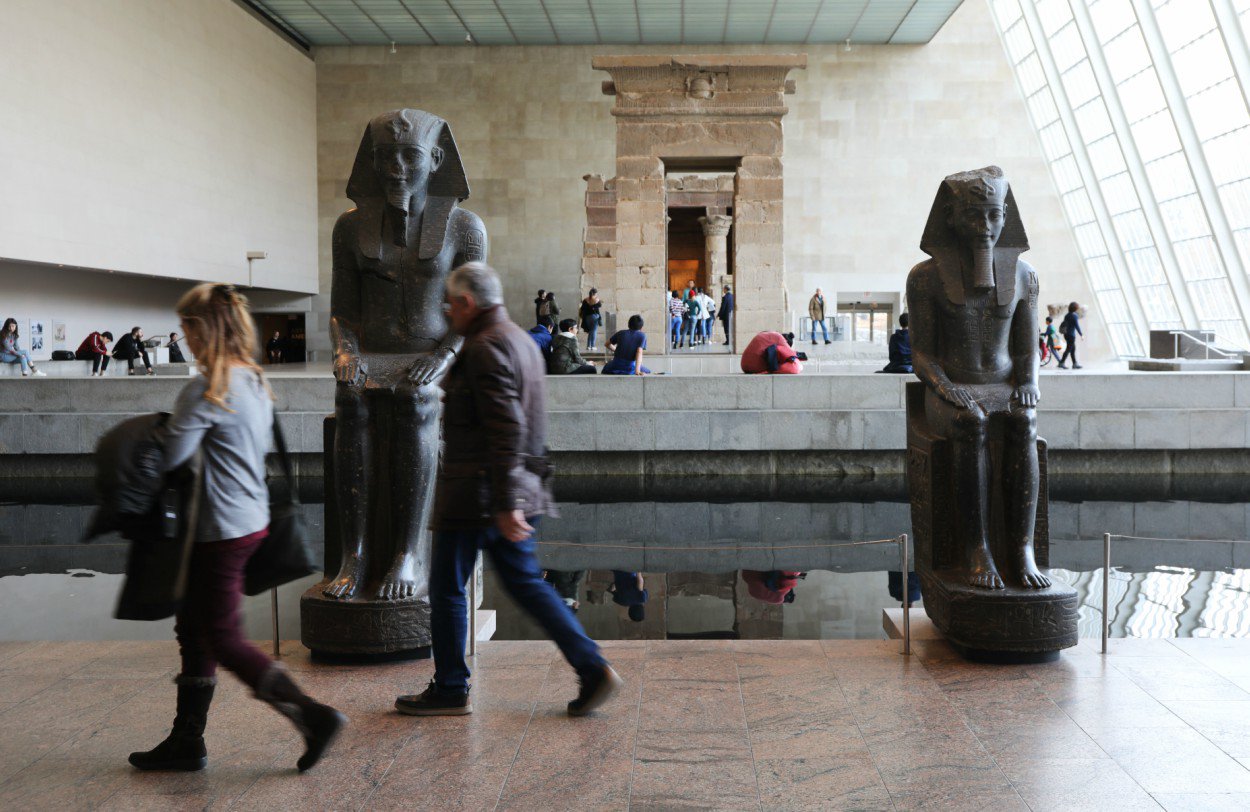[ad_1]

The stolen 2,100-year-old coffin of a 1st Century B.C. Egyptian priest named Nedjemankh has been returned back to the country of its origins after the Metropolitan Museum of Art in New York City, which housed the artifact, found out that it had been stolen.
The museum acquired the coffin two years from a global art trafficking network, according to the BBC.
The museum purchased the coffin from an art dealer in Paris for $4 million in July 2017. It was featured on display up until February of this year in an exhibit at the museum that housed artifacts from Egypt, NBC New York reports.
READ MORE: ‘Gods of Egypt’ movie poster sparks backlash, film accused of whitewashing history
But the coffin was sold using fraudulent documents, along with a forged 1971 Egyptian export license, according to officials.
“Thus far our investigation has determined that this coffin is just one of hundreds of antiquities stolen by the same multinational trafficking ring,” Manhattan District Attorney Cyrus Vance said on Wednesday at a repatriation ceremony in New York, according to Reuters.
Officials said the coffin had been buried in the country’s Minya region for 2,000 years before it was “looted and smuggled” in 2011, the BBC reported.
READ MORE: Ancient hair extensions found on 3,300 year-old Egyptian woman
After it was stolen, it was transported to Germany, where it was restored and then taken to France.
“Coming as we do from all over the world, New Yorkers place a strong value on cultural heritage, and our office takes pride in our work to vigorously protect it,” Vance said. “Returning stolen cultural treasures to their countries of origin is at the core of our mission to stop trafficking of stolen antiquities.”
The museum’s president Daniel Weiss apologized to Egypt for the acquisition of the stolen artifact. The northeastern African nation will place the coffin on display in 2020.
“This is not only for Egyptians but this is for our common human heritage,” Egyptian Minister of Foreign Affairs Sameh Hassan Shoukry said, according to Reuters.
[ad_2]
Source link

